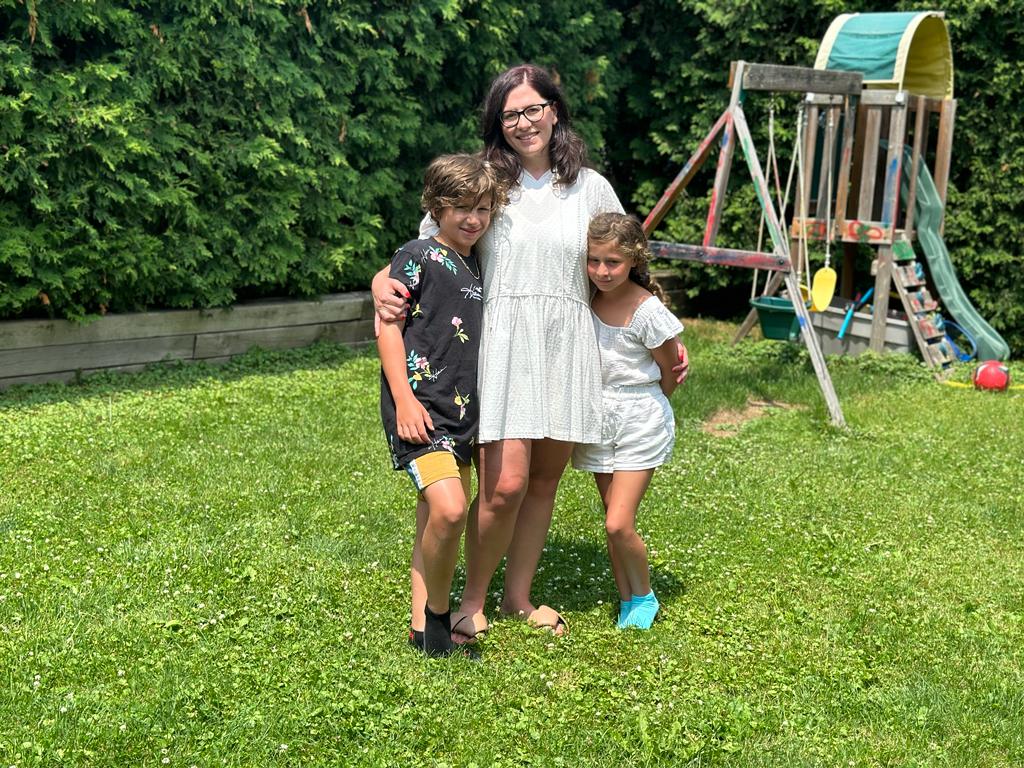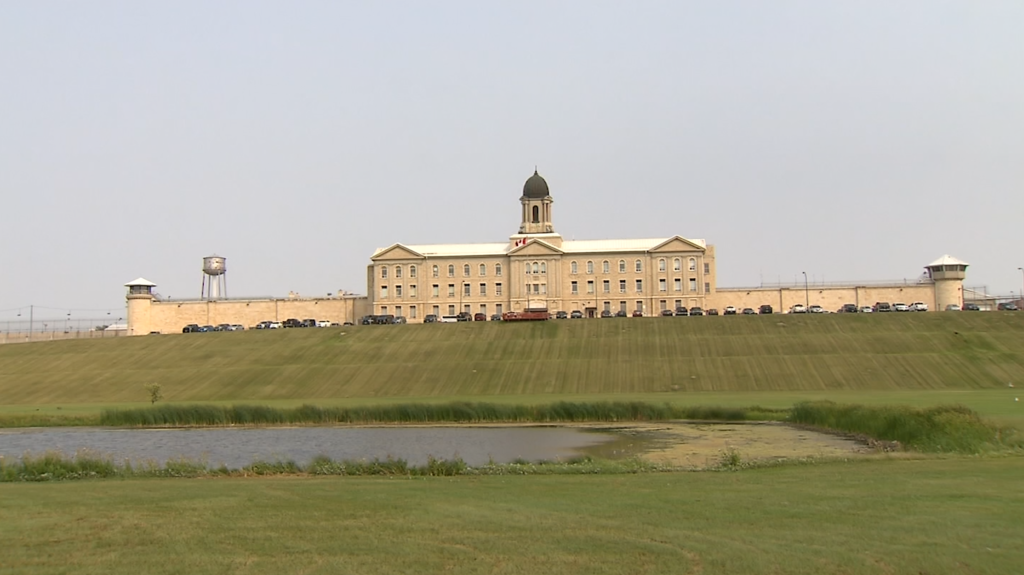Canadians with endometriosis spending thousands to cross the border due to long surgery wait times

Posted July 18, 2023 2:19 pm.
Last Updated July 18, 2023 3:59 pm.
Wait times to get surgery for those with endometriosis can take years, leading some people to head out of the country and spend thousands of dollars out of pocket to seek treatment.
Amanda Fruci didn’t know her endometriosis was so bad until after a U.S. surgeon operated on her three weeks ago.
“My surgeon described it as severe stage four inflammatory endometriosis. My organs were fused together … so my uterus, my bowels, my bladder, my appendix everything was just formed one big ball so that anytime I moved it was just searing pain because all of my organs were shifting.”
Fruci noticed something had been changing with her menstrual cycles back in 2020 and after several OBGYN appointments and the discovery of a seven-centimeter mass on her ovary, she looked into practitioners throughout Canada who specialized in excision surgery.
“My family doctor was sending referrals and one at a time, they were coming back rejected, declined, denied … and in all of this time, I’m in insufferable pain. Like it’s unbelievable,” explained Fruci. “I wasn’t given any real pain management or treatment option. It was live with the pain.”
RELATED: Delay in diagnosis, treatment significantly affecting those with endometriosis
Fruci, who is from Caledon, took matters into her own hands.
She ended up going to New York to receive her surgery. She ended up using a line of credit to pay for it and the costs associated with travel. Fruci estimates the surgery and hospital costs alone were $25,000.
“I’ve applied for out of country coverage with the province of Ontario. I was rejected out of country coverage by the province. We are filing for appeals, but so far, it’s out of pocket expenses, and it is a lot of money,” said Fruci.
“If it can’t be fixed fast enough here, then help us to do it so that we can live the best possible quality of life,” she added.
But she said it’s been worth it.
“I feel amazing. I’m three weeks post up right now. And I can’t imagine having to have to live another day with it,” she said. “Yes, it’s incurred a great debt and it’s not the plan that my family had. But as my husband will tell you or my kids will tell you that having their mom back.”
Fruci said she couldn’t believe that she was rejected from health care in her own country and felt she didn’t really have a choice.
“There was no light at the end of the tunnel … it felt hopeless. I was losing hope, absolutely, here and according to the pathology, I couldn’t have waited any longer.”
Dr. Andrea Vidali, a reproductive endocrinologist in the U.S., said endometriosis is a worldwide problem.
“The root cause of the problem is number one, the prevalence of the disease … it affects at least one in 10 women which is a huge incidence, if you will. And because it’s so prevalent, obviously there’s limited resources. The second part of the problem is that it is a disease that is somewhat not taken seriously enough.”
He currently works out of two hospitals in New Jersey and said he treats anywhere from 50 to 60 Canadian patients every year.
“I don’t know the extent of what’s happening in terms of people seeking treatment in the United States. But I do know just from hearing patients that telling me their stories that it’s something that’s been going on, and that there’s probably a significant number of people coming from Canada.”
Dr. Vidali said despite Canada claiming a one-tier system of health care, in reality people do seek treatment elsewhere. “I will say that it is indeed a two-tier system because ultimately you will always have the separation between the people who can and people who cannot, and people who can go seek care outside and this is not just for endometriosis. It’s pretty much for anything.”
For endometriosis, Dr. Vidali explains, with the one-tier system, there is a delay in care because not only do people have a waitlist to see a generalist and potentially a specialist, but the patients also then have to wait to actually receive treatment.
“People get extremely frustrated, they’re in pain, they’re suffering and so they suffer from this systematic problem, which is not inherently bad, per say, it’s just that the waiting lists accumulate and then people are like, ‘Well, look, I can’t wait any longer I’m in pain.’ Or let’s say people have fertility issues and they’re 39 years old, they can’t wait three years to get their surgeries. So, at that point, they’re stuck, or they have to seek care elsewhere,” said Dr. Vidali.
RELATED: Endometriosis treatment delays can lead to devastating effects on fertility
And surgery for those suffering from endometriosis can be “life changing.”
“It can be life changing because I feel that people who have been struggling with this condition for such a long time … sometimes they’ve been struggling for such a long time and some of them just the validation and the recognition that they have a problem and somebody’s listening to them is just life changing.”
The federal government reiterated to CityNews that they do not collect data on endometriosis so it’s unclear how many people are going out of the country to receive treatment. The Centre for Endometriosis Care in Atlanta, Georgia said approximately 175 patients from Canada inquire about care each year at their clinic and 100 become surgical cases.
After Montreal native Eileen Holowka got what she says is an ineffective surgery that didn’t remove her endometriosis after 10 years of trying to get diagnosis and care, she finally decided to seek treatment options outside of Canada.
“I looked to other provinces to get care, but the doctors who are good are so backed up, because they’re so in demand,” explained Holowka. “The wait times are extreme.”
It’s a decision she doesn’t regret but does feel guilt for. “I believe so strongly in public health care. And so I felt like I was a traitor for leaving the country. And that was magnified by the fact that a lot of the doctors in Canada judge patients who decide to leave and say that they’re getting exploited or that they’re foolish for spending their money.”
She adds it was also scary to receive care in another country.
The only way Holowka was able to afford to pay for the surgery and treatment, which cost tens of thousands of dollars, was because her brother passed away and left her some money. “I was able to use the money that he left behind. Otherwise, I would have been crowdfunding or I don’t know, asking for help from family members. It’s any way you can try and get money,” explained Holowka.
Her surgery, performed at the Centre for Endometriosis Care was effective but she does have some residual pain. “I don’t know if it’s from years of endo or from the surgery. But I have no symptoms of endometriosis … my quality of life has changed drastically. Even though I have chronic pain, this is something I can manage.”
Holowka said while the doctor tells her there is a low chance of her needing another surgery, she is terrified about the same thing happening. “There’s a deep terror and a lot of trauma anytime I need to think about accessing care in Montreal and Canada because I know how hard it is to get care.”
She adds it’s “absurd” that patients are getting better information about endometriosis from one another and social media than they do from doctors. “I know there’s a lot of stigma around getting information online and I think that makes sense because there’s a lot of misinformation online. But that’s the place that people go when they’re neglected by the healthcare system.”
Fruci wants all levels of government to start paying more attention to endometriosis. “I would call the provincial government obsolete. I would call on the federal government to understand, to listen and to hear that women are suffering at this rate is completely unacceptable,” she said.








